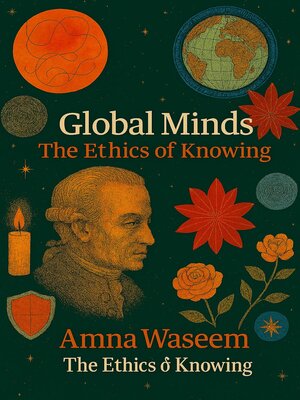Global Minds
ebook ∣ The Ethics of Knowing: Political Science, #4 · Political Science
By Amna Waseem

Sign up to save your library
With an OverDrive account, you can save your favorite libraries for at-a-glance information about availability. Find out more about OverDrive accounts.
Find this title in Libby, the library reading app by OverDrive.



Search for a digital library with this title
Title found at these libraries:
| Library Name | Distance |
|---|---|
| Loading... |
Global Minds: Ethics of Knowing
Volume IV of the Global Mind Series
In this fourth installment of the acclaimed Global Mind series, Global Minds: Ethics of Knowing invites readers into a rich philosophical journey through eight towering thinkers who reshaped how we understand truth, freedom, morality, and the human condition. From Kant's rigorous duty-bound ethics to Sartre's radical existential freedom, this volume explores the ethical dimensions of knowledge—how we know, why it matters, and what responsibilities come with it.
Each chapter offers a vivid portrait of a philosopher's life, major works, and enduring ideas, while weaving their contributions into broader questions of autonomy, justice, and historical consciousness. Readers will encounter:
Written with clarity and emotional resonance, Ethics of Knowing bridges biography, philosophy, and cultural reflection. It is ideal for readers seeking not just to understand ideas, but to engage with them—ethically, personally, and globally.
Whether you are a student of philosophy, a seeker of meaning, or a lover of deep thought, this volume offers a compelling invitation: to think critically, live deliberately, and become part of the global conversation on what it means to know—and to care.







